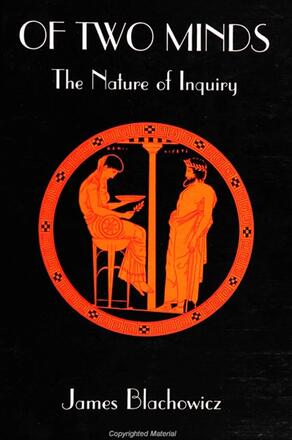
Of Two Minds
The Nature of Inquiry
Alternative formats available from:
Proposes a resolution to the paradox of inquiry, originally formulated in Plato's Meno and most recently the focus of the "logic of discovery" debate in the philosophy of science.
Description
This book examines the nature of inquiry—the general method by which we expand our knowledge. It proposes a resolution of the paradox of inquiry, originally formulated in Plato's Meno and most recently the focus of the "logic of discovery" debate in the philosophy of science. The logic of correction developed here directly opposes the claim made by evolutionary epistemologists such as Popper and Campbell that there is no such thing as a "logical method for having new ideas. " The author argues that beyond scientific discovery, the same logic can be found in the more intimate form of inquiry we conduct as we attempt to articulate meanings for ourselves. This comprehensive and revolutionary theory challenges traditional epistemology's conception of justification and provides substantial new interpretations of the nature of ampliative inference, representation and meaning, Platonic and Hegelian dialectic, Kantian analysis, the heuristic function of models and metaphors, and the role of inquiry in the constitution of human consciousness.
James Blachowicz is Professor of Philosophy at Loyola University Chicago.
Reviews
"Blachowicz tackles the most central questions of epistemology and cognitive psychology in a most ambitious way. Part I has significant implications for philosophy of science and theory of knowledge, Part II raises crucial issues about representation, one of the hottest topics of cognitive science and philosophy, and Part III continues with an original account of meaning, a topic central to psychology, linguistics, and computer science as well as philosophy. Blachowicz's central points are extremely important, and he traces out their implications for an unexpectedly wide range of problems in very insightful ways. The scope of his informed reading is remarkable compared to that of most American philosophers. " — Thomas Nickles, University of Reno, Nevada
"The most important and interesting contribution of this book is that it reopens the perennially vexing set of problems in the philosophy of science concerning the nature of creative thinking and the logic of scientific discovery. The book may well revive interest in the logic of discovery, and do that in a fruitful way by providing the larger context needed in general epistemology. In my judgment this is the best book written on this subject to date. " — Richard Blackwell, Saint Louis University